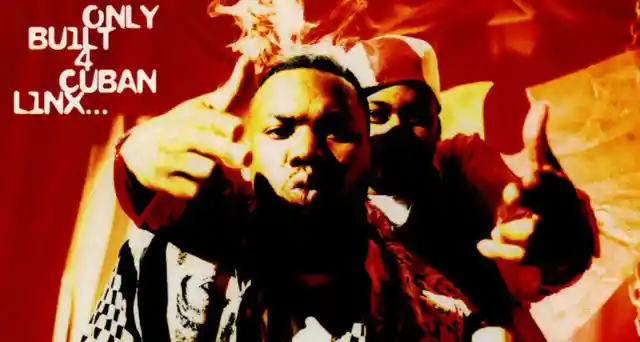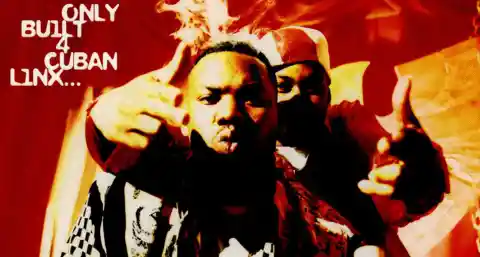

Next month marks the 20th anniversary of the debut record from Wu-Tang Clan member Raekwon. Released August 1st, 1999, Only Built 4 Cuban Linx… was released through Loud Records, and quickly became heralded as a classic. While it’s commercial performance couldn’t match the likes of fellows Clan members Method Man and Ol’ Dirty Bastard, the album proved hugely influential on a plethora of New York-based rappers, and has become considered one of the best rap records of the 90s. It’s an album that’s legacy has carried out for hip-hop heads for two decades, and it’s power could certainly be felt with the devoted anticipation that surrounded the release of its 2009 sequel album Only Built 4 Cuban Linx… Pt. 2 (despite it being considerably inferior).
As beloved the album is among it’s core fan base, many outsiders to the Wu-Tang saga are still not quite privy to its appeal. The rapping on it was saturated by oblique slang, the production leaned more towards being eerie than invigorating, and the mafioso themes in it were derivative of Kool G Rap’s. Also, many were confused as to why it was called a solo album, as fellow Wu-Tang member Ghostface Killah was featured on the majority of the album’s tracks. Raekwon, who beforehand was probably best known for contributing the first verse on “C.R.E.A.M.”, certainly wasn’t concerned with accessibility for his first solo outing, and instead wanted to make a cinematic mobster masterpiece. He even explained that the title was a reference to the chains they used to sport during that era, and was “a warning of its musical potency to those not prepared for the uncut raw contained within.”
The world Raekwon explored in Only Built 4 Cuban Linx… was more surreal than that of other gangsta rap records. It was a dimension where rapper-personas drank crystal and wore minks and formed mafia unions, as opposed to the more realistic loose-knit drug dealers that the genre had previously acknowledged. While Kool G Rap had introduced mafia terminology to hip-hop years before, Raekwon made it more cinematic with a concept album that flowed seamlessly from beginning to end.
Opening with the sketch “Striving for Protection“, the album perfectly sets up it’s world with a powerful dialogue between Ghost and Rae. Here, the two rappers put on their fiction-suits as two gangsters who yearn to put their sinful ways behind them, sublimely accompanied with music taking from the soundtrack of John Woo’s The Killer. While the vast majority of hip-hop albums feel bogged down by sketches, Only Build 4 Cuban Linx… was augmented by them as it forwarded the record’s allusions to cinema. While it was not uncommon for rap songs to refer to gangster films, the Wu-Tang brand has always specialized in more fringe backdrops. Just as RZA and co. had brought kung-fu movies to the hip-hop lexicon two years early, Raekwon synchronized Asian crime movies like Hard-Boiled and A Better Tomorrow with the hip-hop mind set, and fortunately he had the perfect producer to explore this milieu.
Recorded in The RZA’s basement from 1994-1995, the album was entirely produced by The RZA with no engineer. While it certainly carried the gritty texture, string-heavy music, and soul-derived samples that permeated all of The RZA’s work up until Wu-Tang Forever, the sound of Only Built 4 Cuban Linx… was more epic in scope. Realizing Raekwon and Ghostface’s desire to make a transgressive rap record that was both spiritual and street-smart, the RZA sought out a more layered sound frequently recalling piano loops. It’s an album that even took some back-logging in the Wu-Tang catalog (the track “Guillotine (Swords)” features a beat that previously appeared on a sketch on Method Man’s Tical) , but ultimately sounds singular.
So why did Raekwon have Ghostface feature so heavily on his debut. Well frankly, there aren’t two other rappers in the Wu-Tang Clan that have better rapping chemistry. The pair both share a hankering towards using 5 Percenter Slang and basing rhymes around crime narratives, and additionally they both trade off of each other flows in a fascinating alternative fashion (Raekwon is calmer, and Ghostface is more abrasive). The album’s material about mafia life is heightened by the sense of camaraderie the two share, as well as with the frequent guest spots. In fact, the album might find it’s best overall track in the song “Verbal Intercourse”, which guests Nas giving one of his very best verses. It’s no wonder that the song continues to be a necessary inclusion in any live set-list Ghost and Raekwon have, regardless of Nas being there or not.
Of course, this all helps to drive the strongest feature of Only Built 4 Cuban Linx…, it’s arc. Over the album’s 18 tracks (or 17, depending on what version you’re listening too), Ghost and Rae spit a Scorsese-caliber gangster tale, with all the tension, heart-break, and fun you’d expect from a peak Wu-Tang release. Starting off with the relatively convivial Knuckleheadz, the album then dips into darker territory such as the lead single “Incarcerated Scarfaces”, and then goes into highly emotional territory with “Rainy Days” and “Can it Be All So Simple”. Ending with the climactic drama of “Heaven and Hell” and “North Star”, it becomes blatant that Raekwon’s central message on this record is a call towards ending black-on-black violence, and that any glamour in the perceived gangsta lifestyle is simply illusional. A popular theme in rap music certainly, but told through the dreamy style of Raekwon’s record it has a more subversive edge to it.
This review would not be complete without mentioning two other hip-hop albums: Jay-Z’s Reasonable Doubt, and The Notorious B.I.G.’s Life After Death. Both of these records came out within two years after Only Built 4 Cuban Linx…, and both carried mafioso rap even further into the mainstream. While it may have proved to be a hip-hop sub-genre with limited time in the spotlight (acts like DMX and Capone-N-Noreaga returned gangsta rap to it’s more naturalistic roots by the end of the 90s), the elements of it have continued to illuminate the rapper aesthetic, such as popularizing the drink cristal. Two decades after its initial release, Only Built 4 Cuban Linx… is just as much a masterpiece, and in a sense it’s even more relevant in an entertainment world that’s post-The Wire. Not only is it likely to remain Ghost and Rae’s chief album, but it’s the best record any Wu-Tang member has concocted (including 36 Chambers)